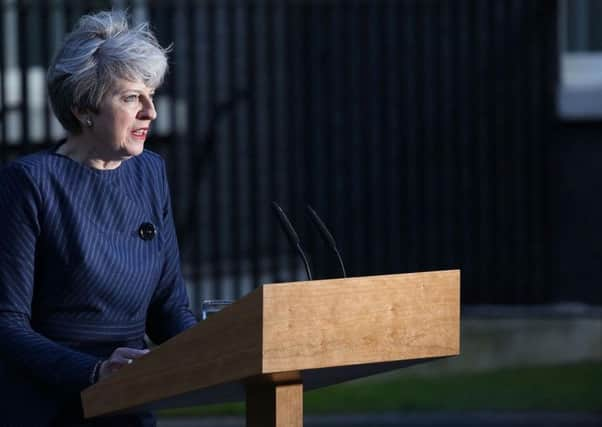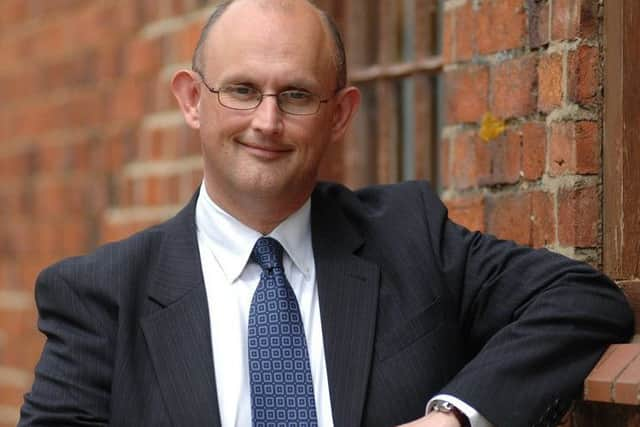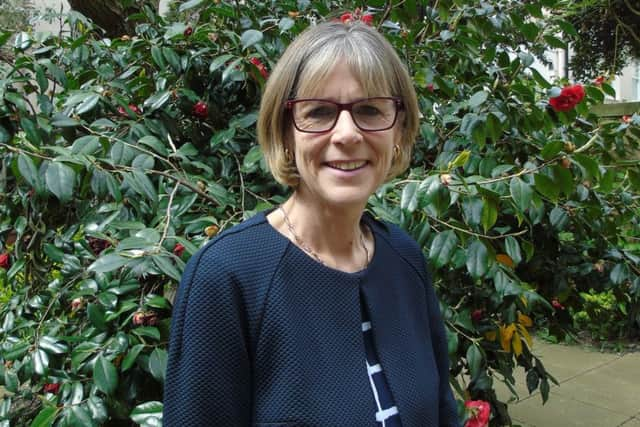General Election: Rural leaders react


Tenant farming chief George Dunn insisted that the nation’s ability to feed itself had become of greater concern because of the rising threat of terrorism and Britain’s strained international relations.
He also urged politicians to lead an informed debate ahead of polling day on June 8, following Theresa May’s surprise decision earlier this week, in a tone that was echoed by his industry counterparts.
Advertisement
Hide AdAdvertisement
Hide AdNational Farmers’ Union (NFU) president Meurig Raymond pledged that his organisation, which represents more than 55,000 farmers, would ensure all political parties understood the needs of the farming community, while the Country Land and Business Association (CLA) said it would make sure the voice of rural communities was heard.


The Tenant Farmers Association (TFA) called on all politicians to recognise the need for a constructive general election campaign which enables Britain to best address the challenges that lie ahead.
Mr Dunn, the TFA’s chief executive, reacted to Mrs May’s announcement saying it ushered in a further period of uncertainty “at a time when we need to be putting in place the policy frameworks required for a post EU Britain”.
However, he added: “We are where we are and politicians from all shades of the political spectrum must show leadership in the forthcoming campaign by allowing constructive debate to enable the British people to make an informed choice when they go to the polls on June 8.”
Advertisement
Hide AdAdvertisement
Hide AdMr Dunn said the TFA will closely examine the Party manifestos to understand what each Party’s approach would be to a new British agricultural policy once the UK leaves the European Union and is no longer subject to the Common Agricultural Policy.


Explaining that he wanted to see measures for securing better food security in those pledges, the tenant farming chief said: “In a world which is becoming increasingly more insecure both through the rise of global terrorism and the straining of international relationships, it is certainly time to look again at the need to increase our self-sufficiency in food as a nation. This is only heightened by the fact that we want high standards of production in relation to the environment, animal welfare and consumer safety which cannot be guaranteed by a greater reliance upon imported products.”
Mr Dunn added: “Whatever the makeup of the next UK administration it must not underestimate the need to ensure that it has a forward looking, comprehensive programme for British agriculture which protects it against unfair competition both at home and abroad, builds resilience and supports it to produce the wider benefits enjoyed by all for which there is no market return.”
According to the NFU, Britain’s food self-sufficiency is 61 per cent, meaning the national larder would run bare on August 9 if Brits ate only food produced in Britain from January 1.
Advertisement
Hide AdAdvertisement
Hide AdNFU leader Mr Raymond said: “With farming arguably the sector most impacted by Brexit, NFU members will want to understand how each of the political parties plans to support profitable, productive and progressive agriculture and horticulture in the future. The right post-Brexit trade deal is absolutely critical but equally well so is a new wider policy framework that better delivers for farming and the nation.


“Throughout the next seven weeks the NFU will ensure that all parties fully understand and engage with the food and farming community on the issues facing the sector both now and post-Brexit.
“British farms currently grow the raw ingredients for the UK food and drink manufacturing sector worth £108bn and moreover the public want to continue to buy British food. For that to happen it’s vital that candidates recognise the enormous contribution that agriculture makes - for every £1 invested, farming delivers £7.40 back to this country – and to back British farming.”
The CLA represents has 30,000 landowners and rural business owners across England and Wales, and the organisation’s director general Helen Woolley pledged her group would rise to the occasion.
Advertisement
Hide AdAdvertisement
Hide AdShe said: “In light of the Prime Minister’s decision to call a general election we welcome the opportunity to get out and engage with candidates about the future of the countryside and ensure the rural voice is heard.


“The CLA will work throughout the campaign to ensure MPs understand that the future of the rural economy must be a national priority through Brexit and beyond.”
Rural communities must be a major part of the forthcoming election, the Countryside Alliance said.
Tim Bonner, the Alliance’s chief executive, said: “This is a crucial election for the countryside, perhaps even more than other parts of the country. The next government will be the first since 1973 to create a policy for British agriculture and the management of the countryside. Rural communities, and the landscapes they conserve, must be a major part of this election.
Advertisement
Hide AdAdvertisement
Hide Ad“Our countryside is a national treasure admired around the world but it is also a home and workplace for millions of Britons. Those who live and work there can be forgiven for feeling that the countryside is often treated as a theme park, not receiving the political support and action it needs and deserves. Rural life holds specific challenges and politicians of all parties must recognise this and make rural policy a significant part of the election campaign.
“Specifically there are five policies we would like to see at the heart of the next government’s agenda. To put the interests of rural communities front and centre of Brexit negotiations; to ‘Buy British’ and support our farmers and producers; to champion country sports by repealing the Hunting Act and recognising the value of shooting; to connect the countryside by deliver first class digital connectivity; and by tackling crime in rural areas.”
And, Tom Hunt, media relations manager at the Countryside Alliance, added: “Yorkshire is likely to be a crucial battleground during the election campaign with a number of marginal constituencies.
“Yorkshire is the heart of rural Britain and many of these marginal constituencies have a rural component. It is vital that the voices of rural people in Yorkshire are heard.”